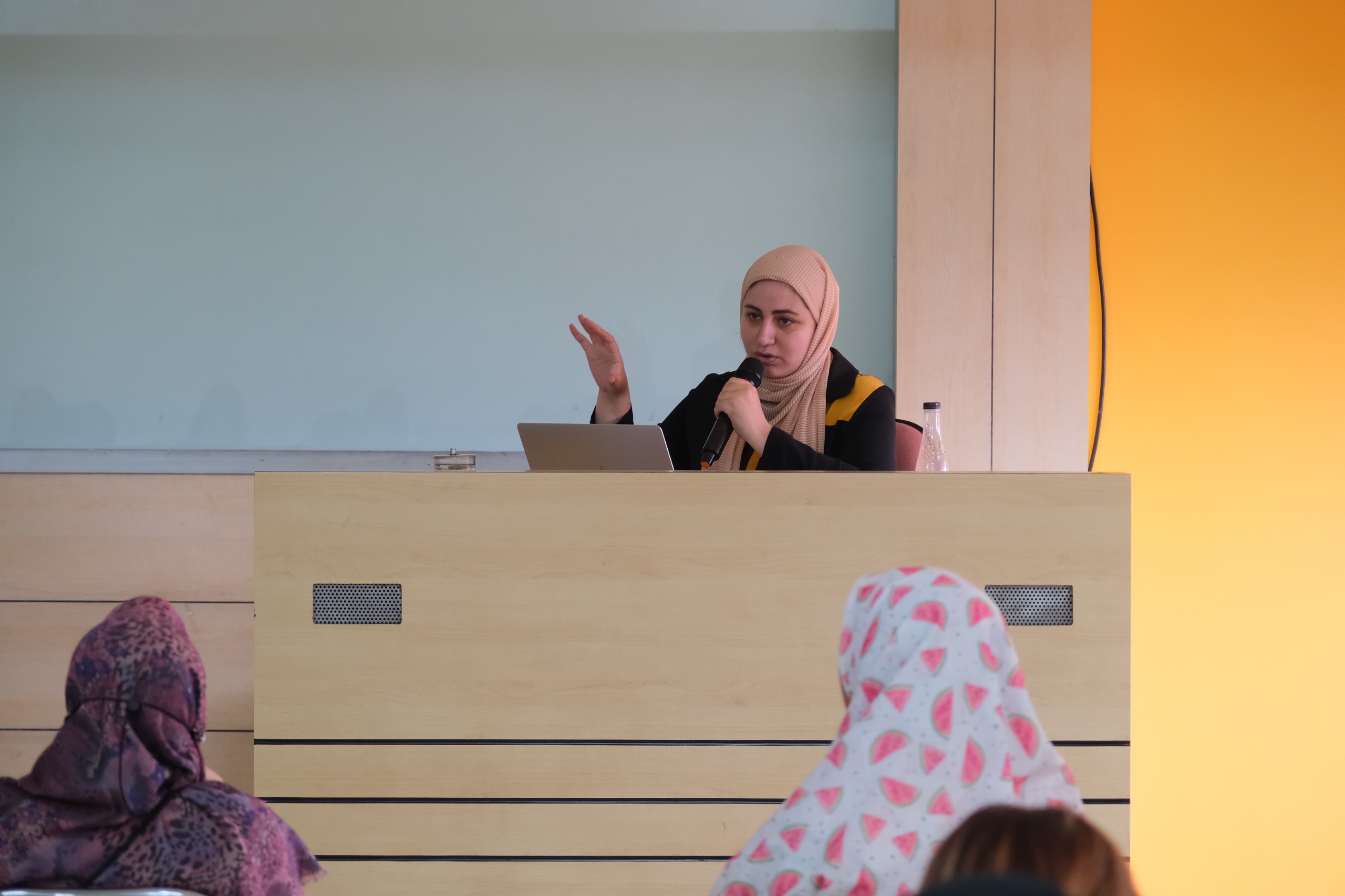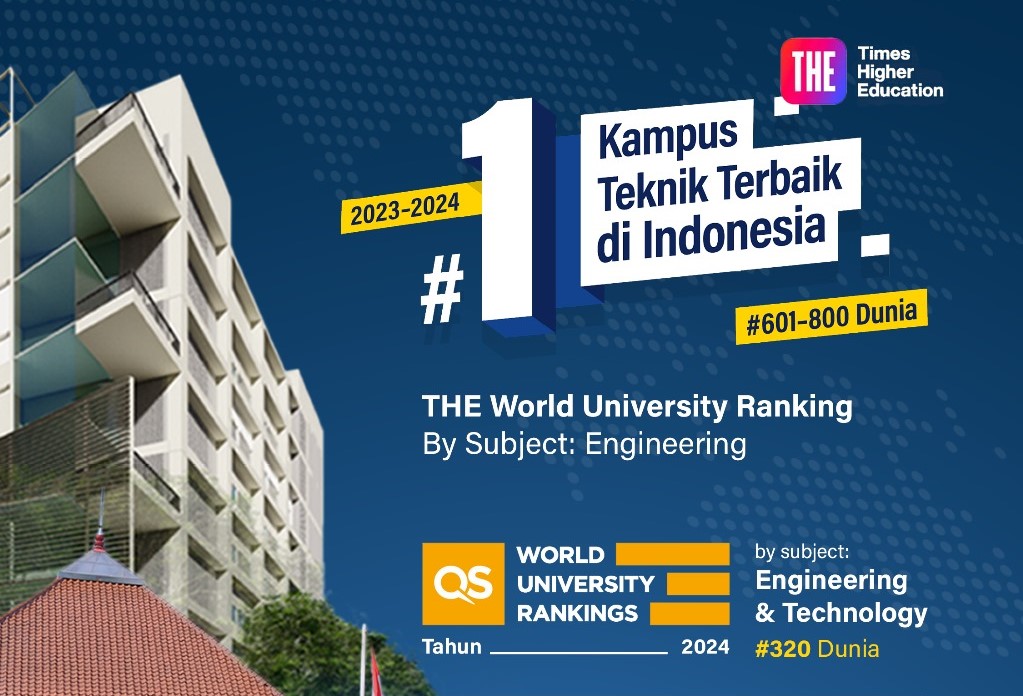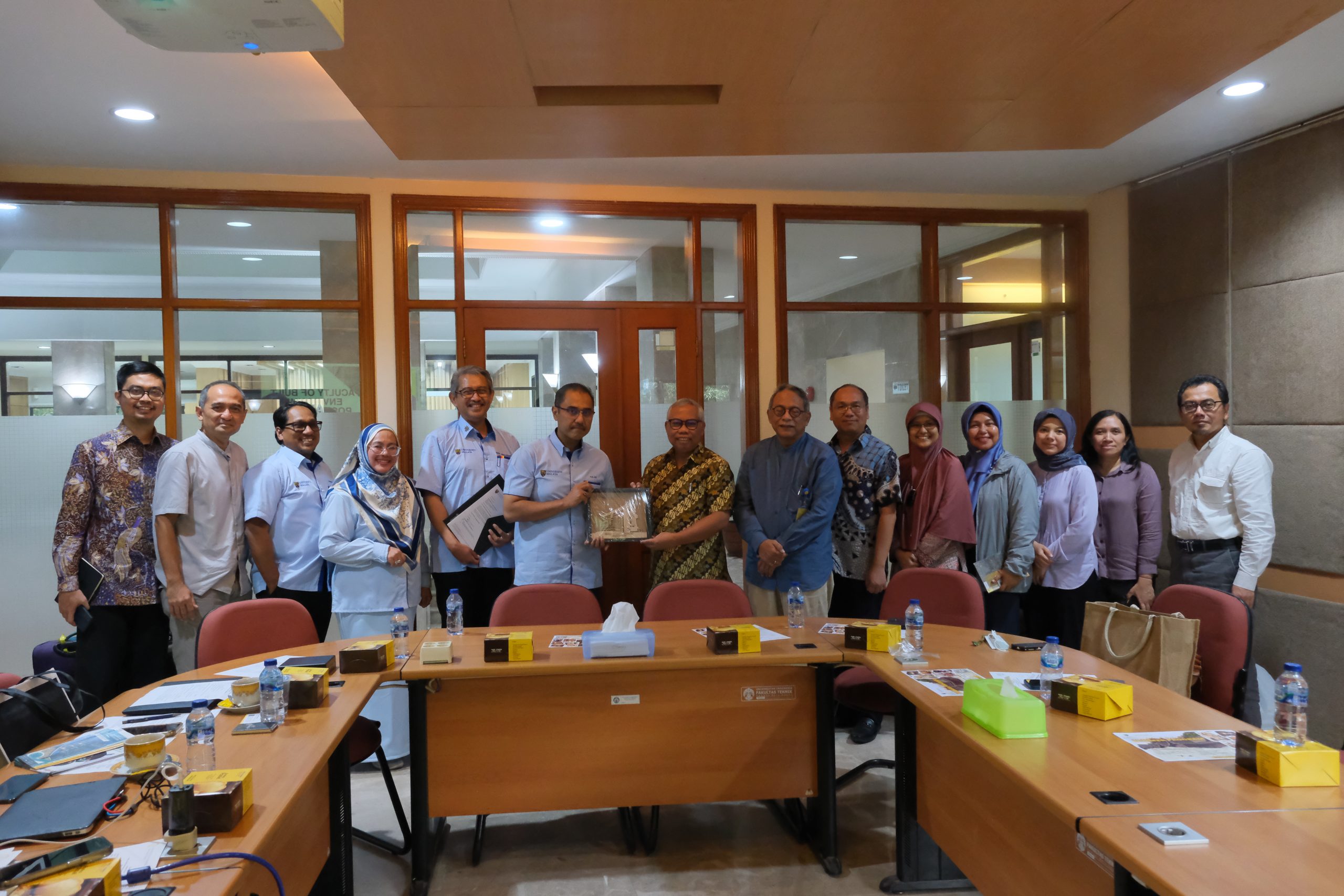On Thursday (28/2), the Environmental Engineering Study Program, Department of Civil Engineering, Faculty of Engineering, Universitas Indonesia (FTUI) held a lecture with a guest lecturer from the University of Technology Sydney, Safaa Aldirawi, M.Sc. He gave a lecture entitled Water, Sanitation and Hygiene (WASH) in Gaza, from Engineering to Human Rights. This lecture was held online through zoom meetings and offline in room S504 Building S FTUI in the afternoon at 16.30 – 18.00 WIB with participants from students of the Applied Sanitation course.
Before the lecture started, Dr. Cindy Rianti Priadi, S.T., M.Sc., Head of Environmental Engineering Study Program FTUI, gave her speech, “In this lecture, Safaa will give her experience as a Gazan citizen and environmental engineering consultant there for several years related to the Gaza situation from several perspectives. We’ll also look a little at Gaza’s history to understand why water is a problem there today. And of course Safaa will explain about the solutions that have been presented.”
“Because Palestine is a hot conflict zone and has no sovereignty over its own resources, especially water resources, the power gap and political context greatly affect water governance. Through the Osli agreement, the Palestinian Water Authority (PWA) was established and is responsible for the development and management of all Palestinian water resources including the implementation of water projects,” Safaa explained.
Currently, Palestinians are experiencing an escalating water crisis. They face major challenges related to the decline in groundwater quality both in quantity and quality. The availability of water in Gaza does not meet the basic needs of the population. Due to seawater intrusion and other reasons, including urbanization, lack of management and sewage contamination, groundwater quality in Gaza has deteriorated drastically, with only 4% of the water taken meeting WHO standards in terms of quality.
Safaa continued with the presentation of examples of WASH projects carried out in the Gaza Strip. One of them is the Maia Project: Bringing Clean Water to Palestinian Children. “The Maia project provides safe clean drinking water to tens of thousands of Palestinian children by installing water purification and desalination units in schools across the Gaza Strip. This process is reversed in reverse osmosis. We take seawater, a highly concentrated solution, and force it past the membrane by adding pressure. On the other hand, we get salt-free water, while on the first side the rest of the water still holds salt that cannot be passed by the membrane,” he explained.
Then there is also the Central Area RO Desalination Plant funded by USAID. The plant was expanded, from a capacity of 2,600 cubic meters per day to 3,400 cubic meters of treated drinking water per day. The work carried out includes new seawater intake coastal wells, intake pipes, salt water discharge pipes, sewage systems and diffusers, workshop areas, pretreatment building systems, RO building systems, chemical systems, treated water systems, electromechanical equipment, Transport of desalinated drinking water to existing mixing and storage reservoirs for further distribution to the central area.
The next project is the improvement of rainwater infiltration in Sheikh Radwan Reservoir. The project is one of the Palestinian Water Authority’s most important programs: harvesting rainwater and surface water by building new dams and reservoirs, rehabilitating existing dams and reservoirs, and increasing artificial groundwater recharge. Unfortunately, infrastructure in Gaza in the past was designed to manage rainwater in some ponds and then pumped into the sea. Shaikh Redwan Pool is the largest rainwater storage pool in the Gaza Strip, with a capacity of about 960,000 m3. The pool is located northwest of Gaza.
Safaa Aldirawi is a Palestinian environmental engineer and researcher with a great commitment to advancing water, sanitation, and hygiene (WASH) practices, integrated water management, and international development. With a rich background spread across the Gaza Strip, Australia, and the Netherlands, Safaa has experience in applying hydraulic techniques and hydrological methods to assess water resources, primarily focusing on groundwater to improve WASH services and using quantitative and qualitative research skills to develop evidence-based water management policy practices and strategies in diverse geographical conditions.
Safaa is currently pursuing a Ph.D. at the Institute for Sustainable Futures at the University of Technology Sydney, studying the important issue of climate change’s impact on groundwater. This research explores transformative adaptation approaches to self-sustaining groundwater supply systems in Indonesia, aiming to encourage more resilient services in the face of climate change.
***
Public Communication Office
Faculty of Engineering, Universitas Indonesia




